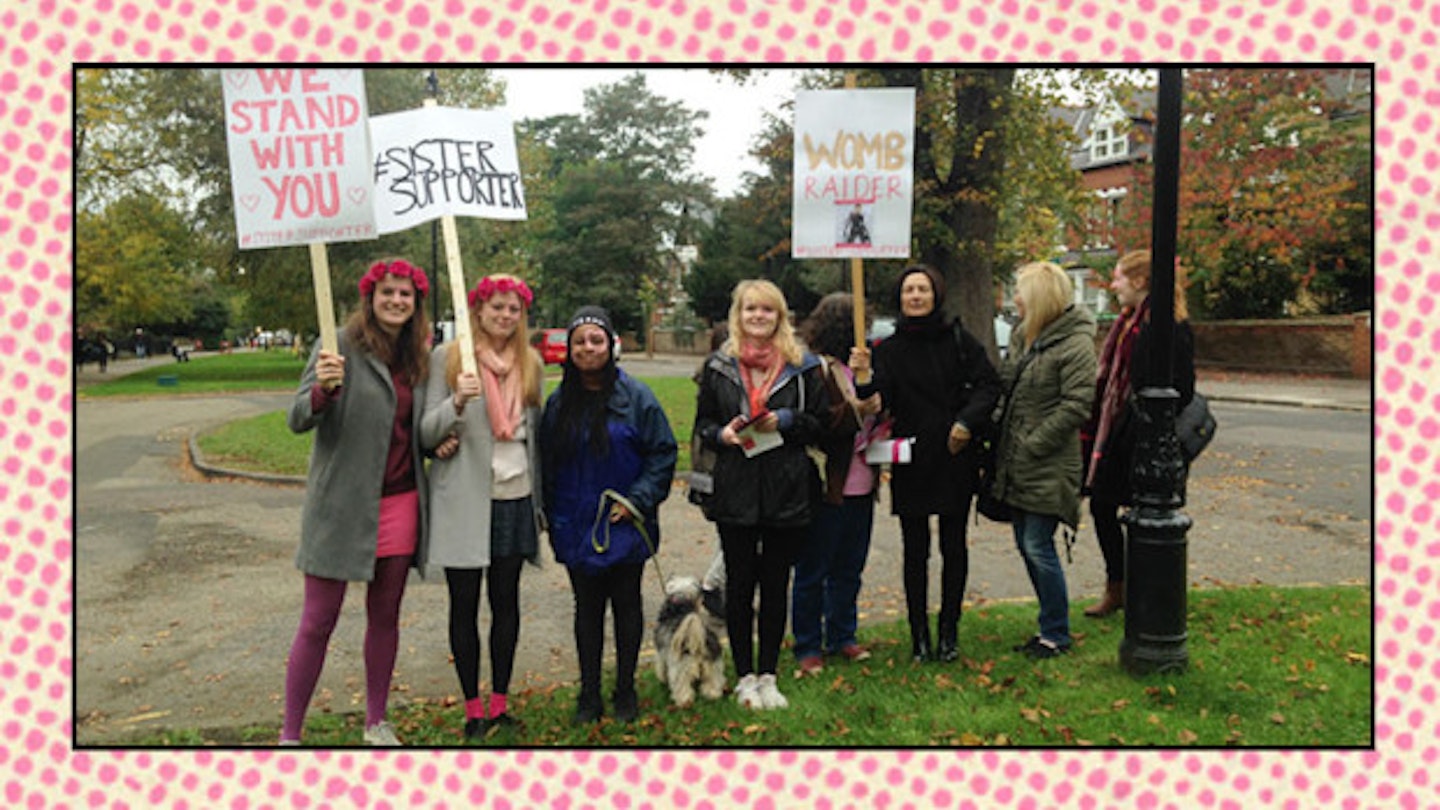We’ve grown up safe in the idea that we have control over our bodies. That if the very worst happens and we’re raped, or even if we’re just careless enough to forget to use a condom, we’ll be able to decide what happens with our bodies afterwards. Sadly still stigmatised in daily conversation – our decisions are still our own. But across the UK, groups of protesters want to change that.
As all eyes are on Planned Parenthood in the US, the fight between pro-lifers and pro-choicers is rumbling on inside and outside of government buildings. Passions run high and convictions run deep in this debate – remember Wendy Davis’s incredible 13-hour filibuster to try to keep abortion clinics open in Texas? Or the woman who broke up a protest outside a PP clinic by yelling 'yeast infection'?
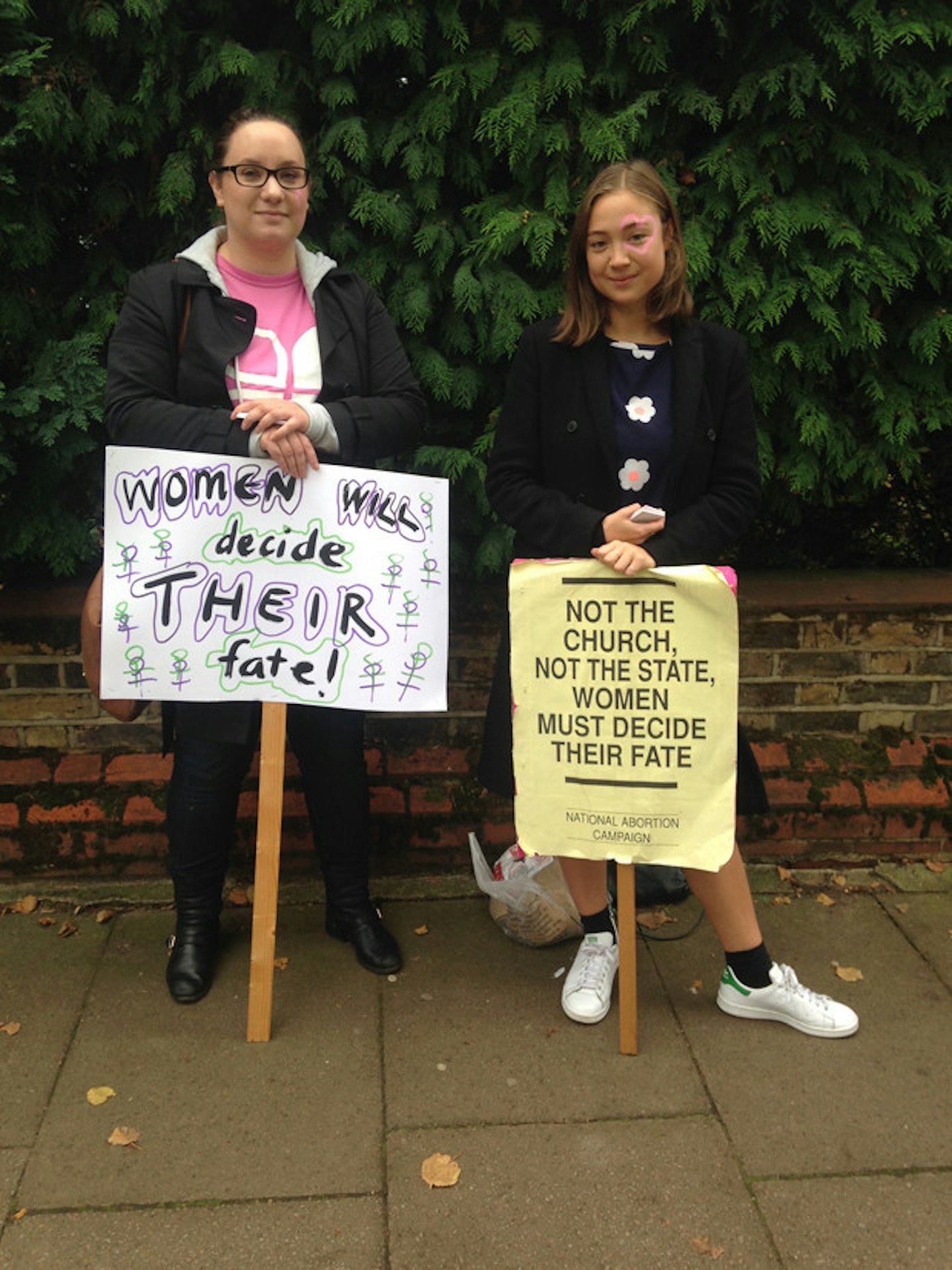
Abortion rights aren’t taken for granted as much in the US. Earlier this year, an anti-abortion group with the misleading name 'The Center for Medical Progress' went undercover to a meeting with PP. In edited secret footage, it seems as if the healthcare provider had been selling foetal tissue, which is illegal. Since the controversial videos were released, certain Republican senators have tried to systematically strip PP clinics – which offer basic things like cervical pap smears, as well as abortions – of funding.
Across the Atlantic, the fight for abortion rights continue. In Ireland, progress has been slow and, so far, thankless as activists look to repeal 'the 8th' – the law banning abortion, even in cases of rape. This summer, Amnesty released a report describing the 'devastating impact' that Ireland’s policy had on its citizens, with 12 women a day getting boats over to Liverpool to get the procedure done, and rape victims and women with severe health implications linked to pregnancy forced to carry their babies to term. The country may be buoyed by the success of the same-sex marriage referendum, the sad history is that abortion has been voted against three times in referendums since 1983 and, at present, the Irish government show no sign of wanting to hold another vote on the issue.
But what about the UK?
And now, as the discussion around abortion intensifies internationally, attitudes to abortion at home, here in the UK, are also coming into focus.
Northern Ireland never signed up to the Abortion Act 1967, which means that it is illegal to perform an abortion there unless there is proof that carrying the foetus to term would severely harm the pregnant woman's health. They're left with two options; go across the water into UK where they can get one on the NHS – but have to pay. That said, the fee is discounted for women travelling from Northern Ireland. But still, that's little consolation after all they've gone through to get there...
Abortion laws are to be devolved to Scotland, in line with the NHS and criminal justice, which has led to worries that it may hinder women’s access to abortion services. The Scottish government says it has no plans to overturn the current 24-week limit for abortion, but some women’s rights groups have said that if it does change the law, then it could put women at risk and undermine the basis for abortion in the rest of the UK.
Sexual health charity Family Planning Association’s Chief Executive, Natika H Halil, told The Debrief: 'At the heart of any decisions made about abortions in Scotland must be Scottish women.'
Halil added that in Scotland, as the current laws stand, that women have to travel for England if they need a termination later on in their pregnancy, which can be distressing. 'Women accessing abortions after 18 weeks have to travel to clinics in England, and I hope the Scottish Government will put resources into NHS Scotland services so women will be able to stay close to home.
'I also hope that those who would like to see access to abortions restricted will not try and use this as an opportunity to exercise their anti-choice beliefs. Abortion is a fundamental health care issue, and must not be treated as a political football.'
However, across the UK, religious and ideological game-playing is putting women’s wellbeing at risk when they try to access abortion. We’re all used to images of protesters outside US abortion clinics trying to convince women not to get abortions (or we’ve seen Juno) but it’s now a reality in the UK. One abortion clinic was forced to close down earlier this year because of the pressure of protestors. Even if the protests are silent – which means more quiet than actually totally silent – one study says that it’s just as stressful for the women seeking help as it is if the protestors shouting at the top of their voices.
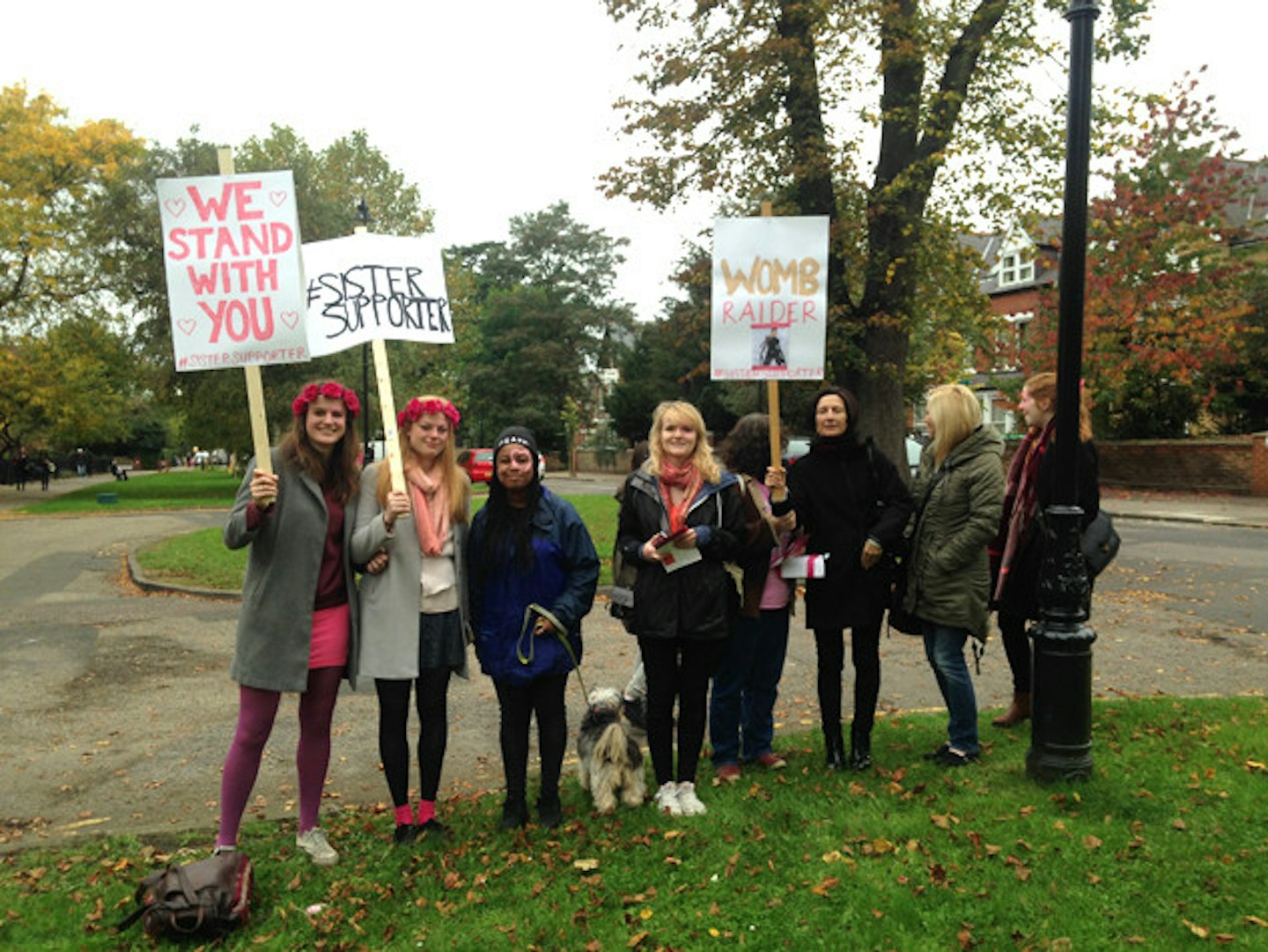
The Debrief went to a counter-protest outside the Marie Stopes centre in Ealing, west London, to see the battle played out between two groups. In front of the clinic – which just looks like an ordinary house on a quiet suburban street – is a group of 20 or so Christians praying, with a few dotted about handing out pamphlets to women going into the clinic. One leafleter stands right outside the entrance, handing out a flyer saying 'Pregnant… Worried? We’ll help!'
Written inside is the demand: 'Please don’t do anything now that will HURT YOUR CHILD'. It sits alongside promises to help your unborn baby be adopted and to correct your moral outlook. On either side of the pro-lifers is Anna Veglio-White and her friends. A 20-strong group of feminists carrying signs saying 'we stand with you' to women going into the clinic.
Anna, who lives locally, started the protest in response to what she believes is the intimidating presence of pro-lifers. 'They’ve got signs, they approach women entering the clinic,' she said: 'It makes me sick to my stomach.' The campaigners have surrounded the front of the clinic with cute, colourful pictures of foetuses as well as life-size models of what the unborn 'child' (it's a foetus) looks like at different stages of development. There’s also a laminated picture of Christ propped up against the entrance, which reminds The Debrief of his words: 'Let he who is without sin cast the first stone.'
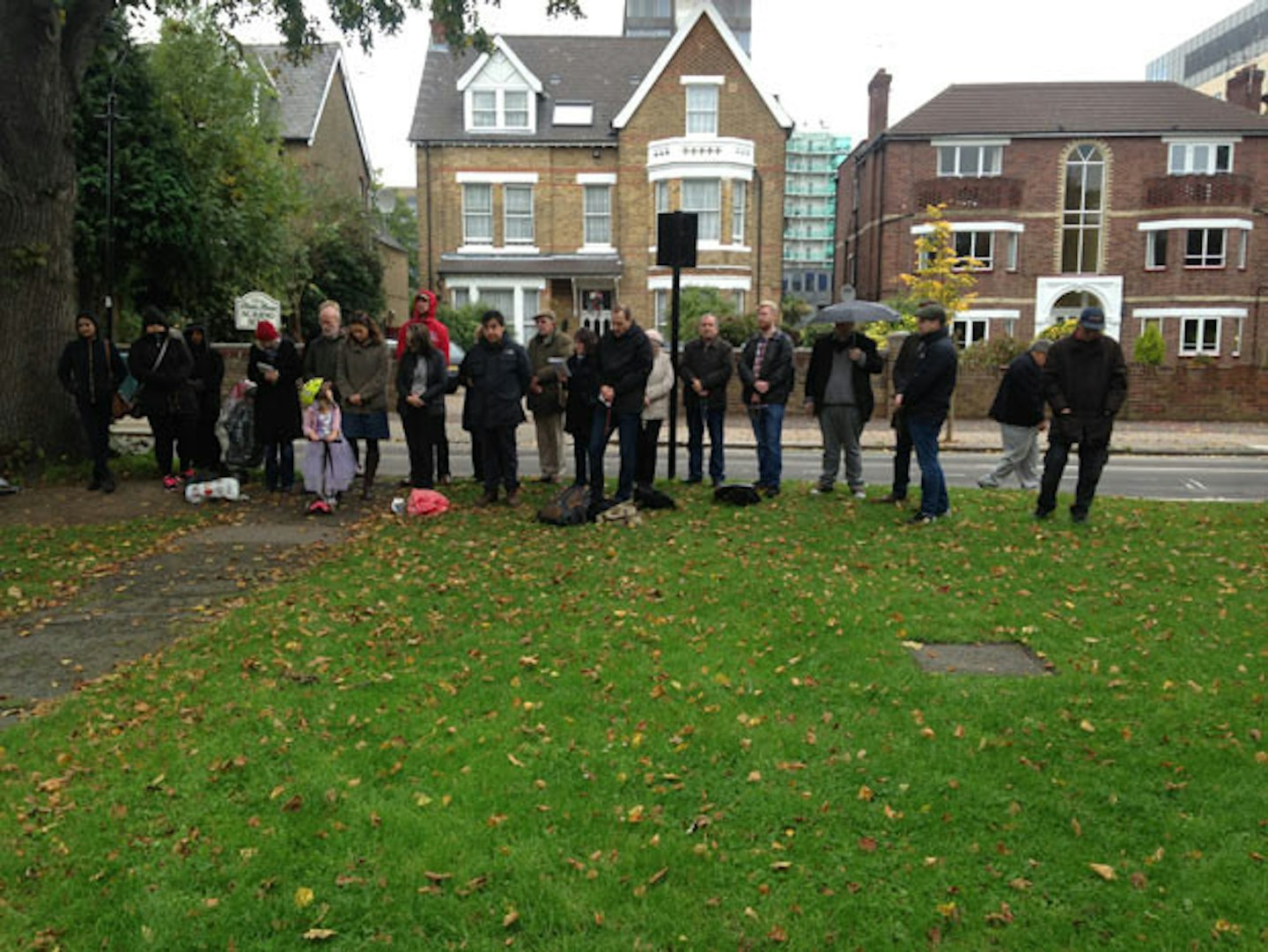
Anna adds: 'No woman makes this choice lightly, I mean no woman should have to go through it but sometimes it’s just the way it is, and the fact that they’re mainly men [protesting against it] … the fact they have signs, the fact they say that they can help the women when they’re in a really vulnerable position is just unfathomable.'
Anna’s mother, Bunny Veglio, describes herself as a 'veteran' of the pro-choice movement. She claims to have been pushed and assaulted by a member of a pro-life protest group during a past demonstration, and says that she’s proud of her daughter for standing up for women’s rights. 'I think we all are and it’s wonderful that her friends are willing to take the concerns further and in the future we need to know that young women are aware of the problems and they need to do something about it'
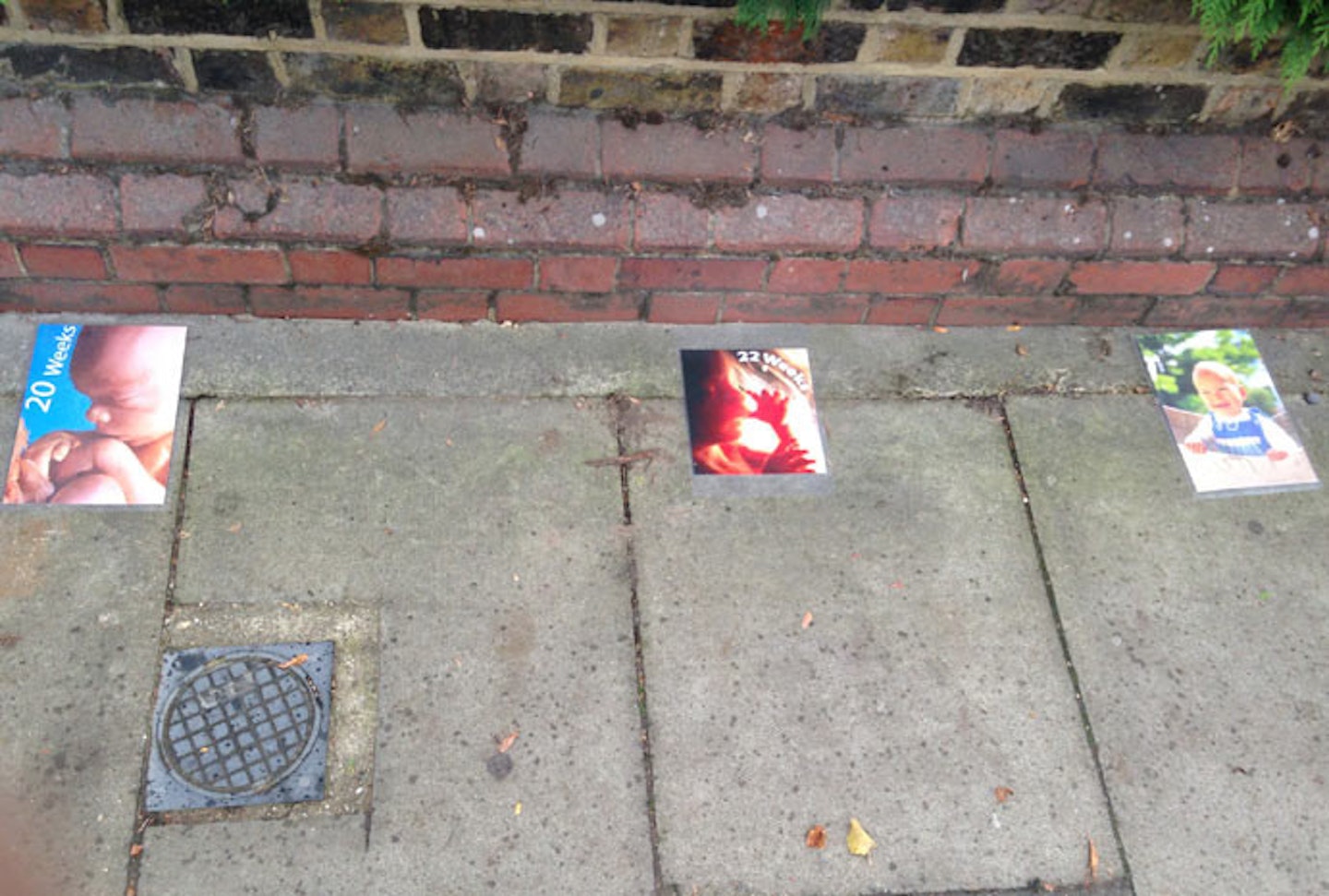
Are buffer zones around abortion clinics the answer?
Former Shadow Minister for Women and Equalities Yvette Cooper confirmed to The Debrief that she endorsed a buffer zone outside abortion clinics, which would mean that anti-abortion protesters would not be able to have any contact with women seeking an abortion. Meanwhile, the office for Women and Equalities Minister Nicky Morgan referred us to the Department for Health whose spokesperson told us: 'There is a balance to be struck between the right to protest as part of a free and democratic society, and the rights of others not to fear intimidation or serious disruption when acting within the law'
The British Pregnancy Advisory Service’s (BPAS) Back Offcampaign – which is all about making women feel safe when entering a clinic – demands the exclusion of activists from the area around clinics. This is because their presence harms women's right to seek free and safe medical care.
A recent study into the feelings of women who have to walk past anti-abortion protestors to get into an BPAS clinic detailed some horrible experiences: 'When [I was] arriving people were outside with signs. It made me scared to come in and [I] was physically shaking' and 'I was scared that I would be harassed or injured by an over-zealous extremist'.
The FPA says that the protests are 'unacceptable' and that the situation in the UK is becoming ever-more American. 'It feels as if this is creeping more into England,' Helail says, 'which is why we support BPAS’ Back Off campaign, to establish buffer zones. While we agree with the right to protest, women have the right to access abortion and counselling services free from the threat of intimidation, harassment and assault.'
That is, at base level, our right, and right now, across the UK, it is being infringed.
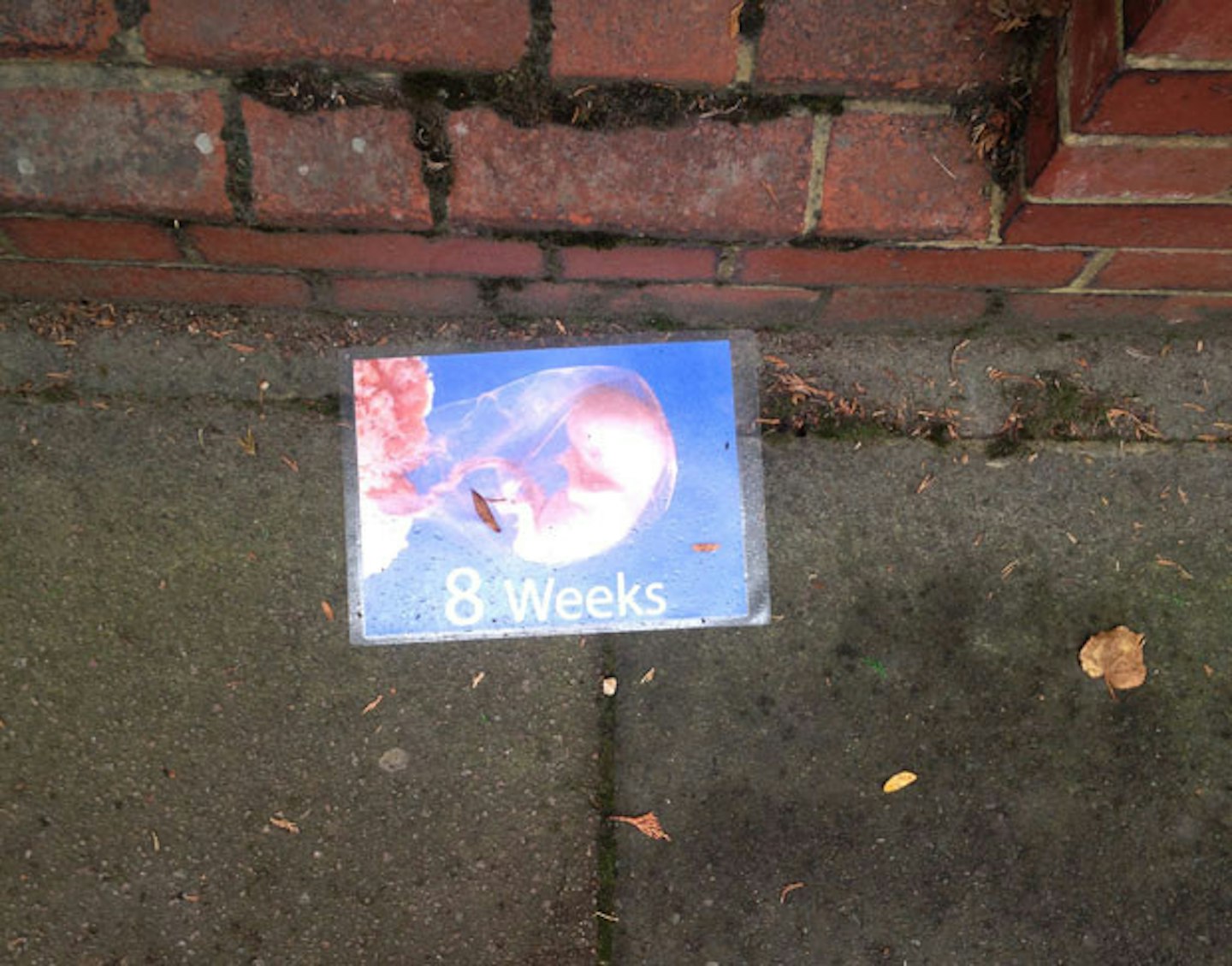
You might also be interested in:
Woman Breaks Up Anti-Abortion Protest By Shouting 'YEAST INFECTION'
Follow Helen on Twitter @helennianias
This article originally appeared on The Debrief.
